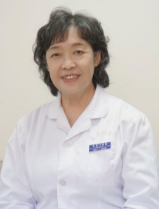
Zhao Jiping has worked in the Acupuncture Department of Dongzhimen Hospital, Beijing University of Traditional Chinese Medicine, for 40 years. She holds the positions of Chief Physician, Professor, and Doctoral Supervisor. She has been the director of the Acupuncture Department for 20 years and the director of the Acupuncture Teaching and Research Office for 26 years. She is responsible for a key specialty designated by the State Administration of Traditional Chinese Medicine. She serves as the director of the Allergic Disease Center at Beijing University of Traditional Chinese Medicine, and in charge of the Allergic Disease Specialty Alliance at the university. She is also the head of the Clinical Acupuncture Department and a leading figure in the field. She has been recognized as one of the outstanding TCM clinical experts nationwide, an academic mentor for TCM experts in Beijing and nationwide, a mentor in Beijing’s TCM heritage “Double Hundred Project,” and a renowned TCM practitioner in Beijing. She has received accolades such as Beijing’s Outstanding Teacher, Outstanding Backbone Teacher in Beijing’s Higher Education Institutions, Teaching Master in Beijing, Chairman of the “Acupuncture and Moxibustion” Curriculum Alliance of the Chinese Medicine Steering Committee of Higher Education Institutions of the Ministry of Education, and the person in charge of the undergraduate course “Acupuncture and Moxibustion.”
Currently, she serves as the Deputy director of the Sleep Health Management Committee of the China Association of Acupuncture, Deputy director of the Pediatric Encephalopathy Special Committee of the China Association of Acupuncture, Deputy director of the Acupuncture Equipment and Facilities Working Committee of the China Association of Acupuncture, a member of the National Acupuncture Standardization Technical Committee, a member of the Acupuncture Clinical Special Committee of the Beijing Acupuncture Society, and the Chief Examiner of the National TCM Certification Center, among other roles. She has led 20 national and provincial research projects and served as the chief editor of the national planning textbook “Acupuncture and Moxibustion,” the chief editor of the national standardized training textbook “Acupuncture and Moxibustion” for TCM resident physicians, and the chief editor of the designated textbook for the national physician qualification exam. She has published over a hundred academic papers and has received numerous awards, including the First Prize of the China Association of Acupuncture’s Scientific and Technological Award as the first author, the Second Prize for Teaching Achievements in Beijing, the Third Prize for Educational and Teaching Achievements from the Chinese Medical Association, and multiple awards for educational and teaching achievements from Beijing University of Traditional Chinese Medicine.
Topic :
On the Influence of Modern Medicine to the Diagnosis and Treatment of Acupuncture for Chronic Low Back Pain
Abstract:
This topic primarily analyzes the differences and similarities between Western medicine and traditional Chinese medicine in their understanding of low back pain, the distinctions in thinking between the concept of “Da Fang Mai” and acupuncture in the diagnosis and treatment of low back pain, and the comparison between the acupuncture treatment described in the ancient Chinese medical text “Su Wen: Ci Yao Tong Lun” and modern clinical acupuncture treatment. It also discusses the impact of modern medical knowledge on the diagnosis and treatment approach of chronic low back pain with acupuncture, including aspects such as the integration of Western and traditional Chinese medicine, the refinement of disease diagnosis (combining modern examination technology to accurately identify diseases, and combining modern anatomy knowledge to accurately identify disease locations), and Integrate Western medicine to guide the determination of treatment plans (selecting acupuncture points accurately, determining the precise direction and depth of needling, and controlling needle sensation for a more comfortable acupuncture experience).